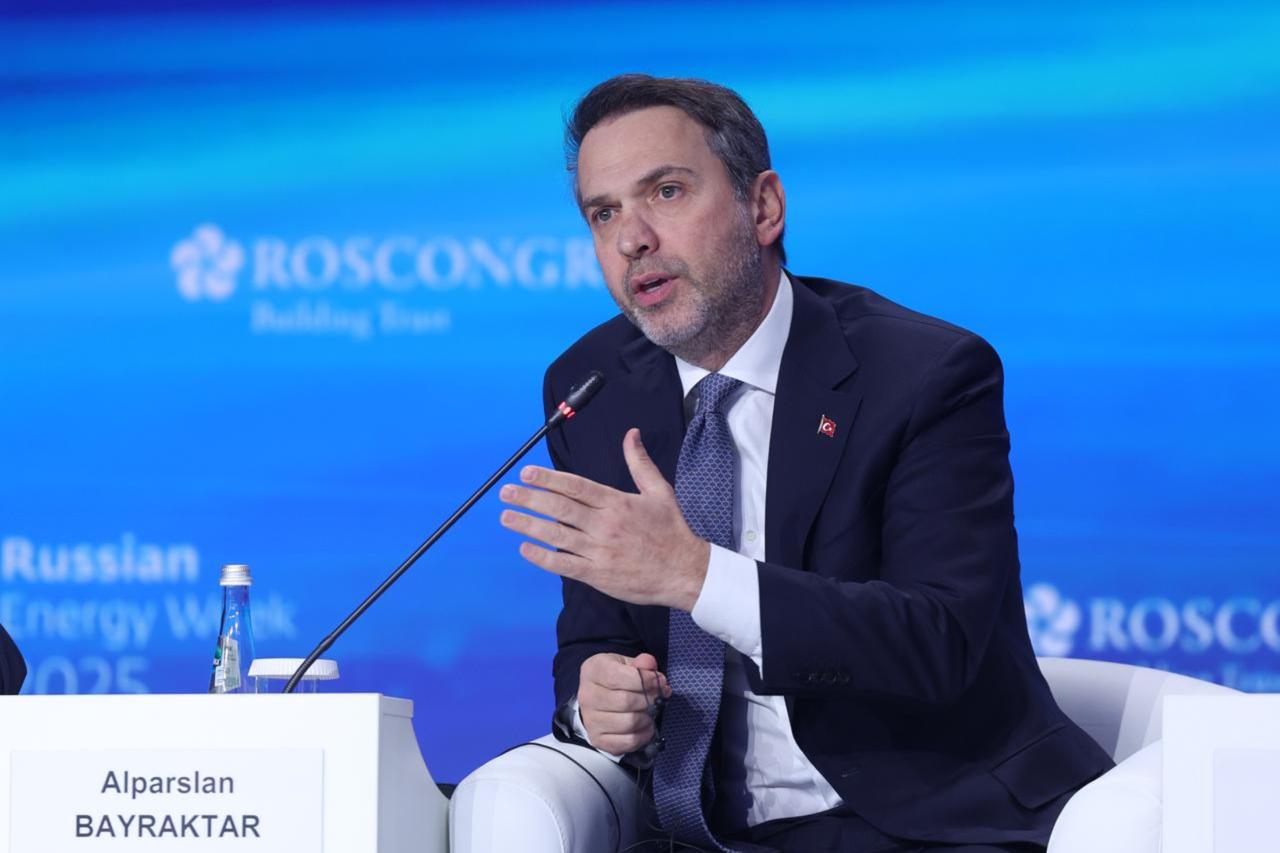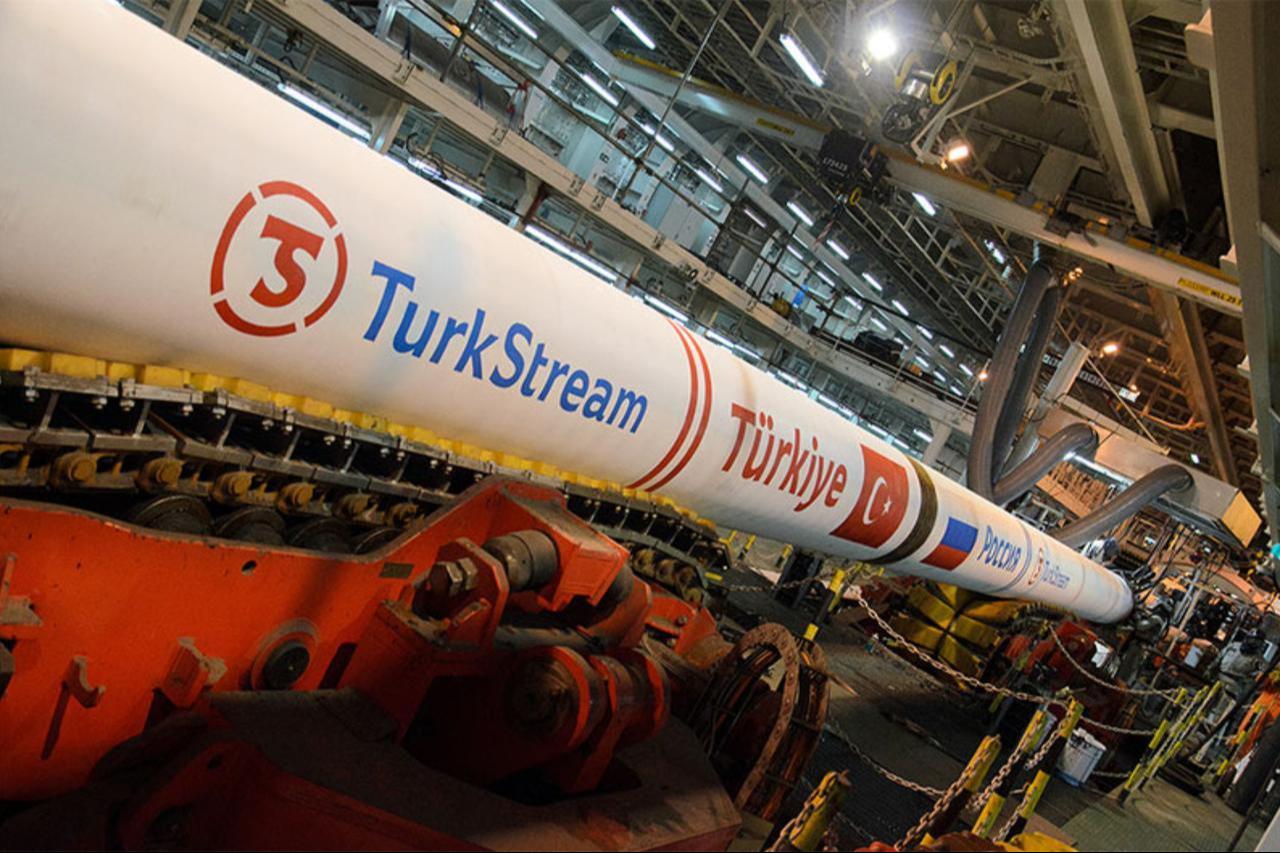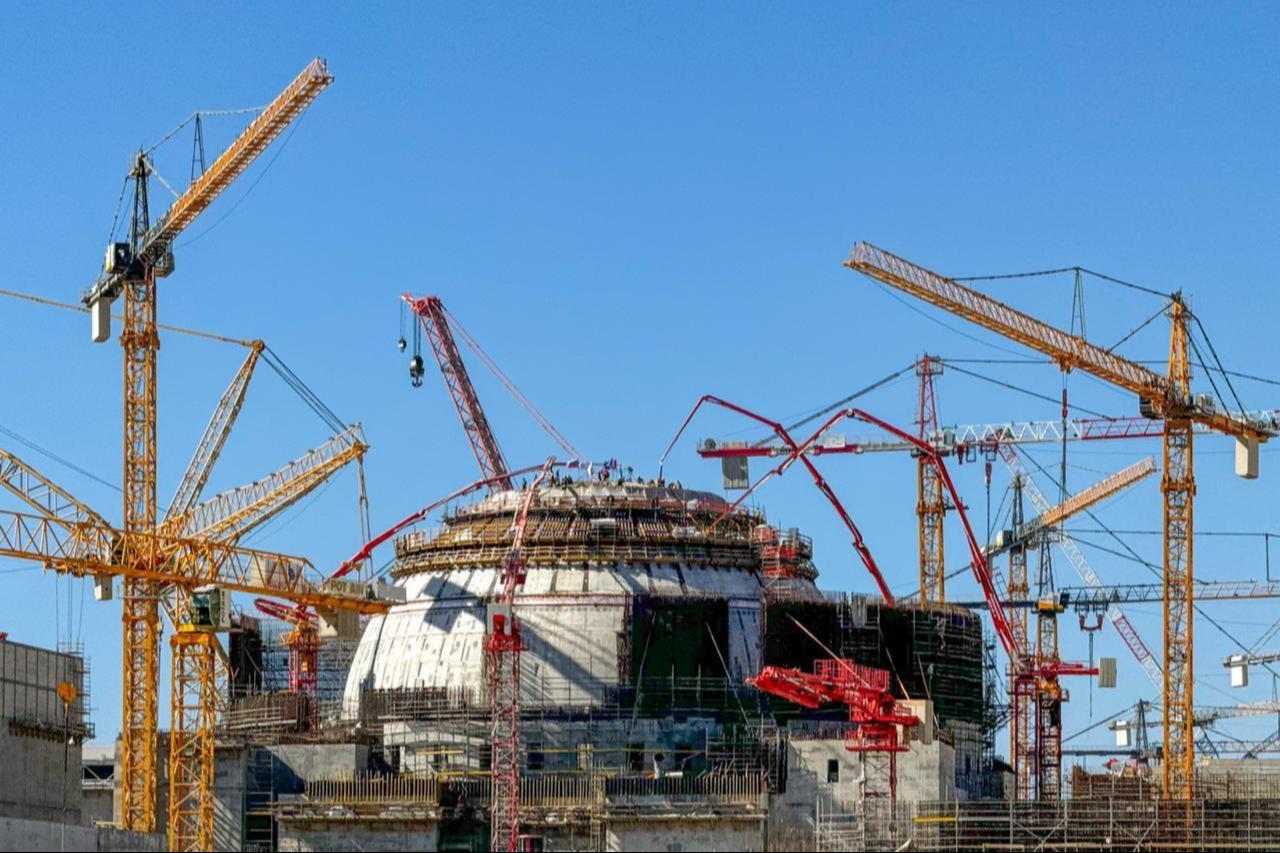
Türkiye’s Energy and Natural Resources Minister Alparslan Bayraktar said Wednesday that Türkiye has assumed a critical role in Europe’s energy security through major gas corridor projects such as the Trans-Anatolian Natural Gas Pipeline (TANAP) and TurkStream, which transport natural gas from the Caspian Sea region to Europe, extending as far as Italy.
Speaking at the "Global Energy Markets: Transformation of Relations and Balance of Interests" forum during Russian Energy Week in Moscow, Bayraktar said both pipelines have turned Türkiye into a pivotal connector between producers and consumers. He added that this cooperation should be mutual, calling on European countries to expand interconnection capacity not only in oil and gas but also in electricity.
"There is much that can be done in this field, but it requires strong political will and determination," he said.
In 2024, TANAP transported 16.2 bcm of Azerbaijani gas annually from the Caspian Sea to Europe, supplying 5.7 bcm to Türkiye and the rest to European markets via Greece and Italy. TurkStream, carrying Russian gas under the Black Sea to Türkiye and onward to Southern Europe, delivered about 9.93 bcm to the continent in the first half of 2025.
Bayraktar said Türkiye is pursuing what he called the "Turkish Way" — a pragmatic and flexible energy policy designed to meet rising domestic demand, reduce import dependency, and achieve carbon neutrality by mid-century.
He emphasized that this approach includes all energy sources without exclusion. "Our goal is to meet our energy needs, lessen dependence on imports, and move toward becoming a carbon-neutral country by the middle of the century," he said. "We follow a comprehensive and adaptable policy, open to every source and every fuel."

Bayraktar said Türkiye’s electricity demand is projected to triple over the next 30 years, making diversification essential.
Türkiye plans to add 8–9 gigawatts of renewable energy capacity each year, targeting 120 gigawatts by 2035, a level that would make renewables the backbone of the national grid. Solar and wind projects are expected to play a leading role, with a strong emphasis on domestic equipment production and grid integration, Bayraktar stressed.
Alongside its renewable expansion, Türkiye is advancing nuclear power with the Akkuyu Nuclear Power Plant, being built in cooperation with Russia’s Rosatom. The four-reactor facility will have a total capacity of 4.8 gigawatts, with the first reactor expected to begin operation by 2026. Bayraktar said the project would mark a milestone in Türkiye’s energy transformation by providing stable, low-carbon baseload electricity.
The minister added that Türkiye aims to construct at least 12 large-scale nuclear reactors and an additional 5 gigawatts of small modular reactors (SMRs) in the coming decades to ensure both reliability and long-term supply stability.
"While placing renewables at the core of our system, we also include nuclear power in our energy mix," Bayraktar said. "It’s about achieving balance — combining clean, local resources with secure and sustainable technologies."

Türkiye continues to cooperate with international energy partners from Pakistan to Libya, Somalia, Iraq, and the Caspian region, while importing LNG mainly from North America, Mozambique, Australia, and Russia, the minister pointed out.
He also highlighted that Türkiye has intensified exploration and production activities, particularly in the Black Sea, and now positions itself as a potential gas exporter. Türkiye’s annual gas demand stands at about 60 billion cubic meters (bcm), while domestic output from the Black Sea is expected to reach 16 bcm by 2028, Bayraktar indicated.
Bayraktar outlined that since 2016, Türkiye has sharply expanded its liquefied natural gas (LNG) regasification capacity from 32 million cubic meters per day to 161 million, enabling imports from multiple global suppliers. "These investments have made Türkiye capable of sourcing energy from various directions," Bayraktar said.
Türkiye’s "Turkish blend" model — mixing gas from different suppliers before export — allows the country to offer affordable energy to its citizens and neighboring markets. "LNG brings flexibility and competitiveness," he said. "When abundant sources enter our system, we can offer more affordable gas domestically and regionally."